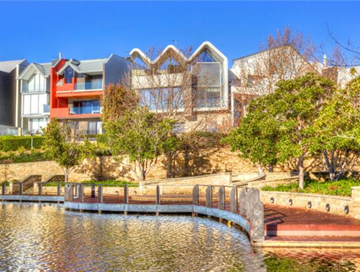Standing on your own two feet, renting for the first time and paying your own way can be a daunting prospect. But if you can budget and keep track of your finances, the sense of accomplishment and freedom is worth the effort.
It might take a little time to figure out what works for you when creating and sticking to your budget, but there's a basic formula to follow. Here are three easy budgeting tips to get you started.
1. Workout your household income
Whether you're living alone off one income, combining pay cheques with your partner or splitting expenses with a housemate, the first thing you will want to do is work out your household income.
Your household income may include your pay cheque from work, investments and government allowances, such as youth allowance. Once you have worked out your monthly income, you can start planning your budget and deducting the necessary expenses.
2. The necessary expenses
From your household income, set aside money for the necessities you will need to pay each month, including your rent of course. Although different for everyone, necessary expenses can include:
- Insurance (home, health and car)
- Utilities (water, gas and/or electricity)
- Phone and internet connection
- Car loan repayments
- Public transport
- Prescriptions
- Groceries
Write a list of the essentials you need to keep yourself and your household going - the basic necessities you can easily expect to pay each month.
Typically, you will spend around 50 per cent of your income on these expenses. However, aim to spend no more than this percentage to ensure you have money left over for savings and unexpected costs that might crop up during the month. This could mean shopping around for the best deals on insurance or being savvy with your grocery list to keep expenses low.
Speak with a financial advisor to work out the best way to pay for these expenses, such as setting up an automatic transfer, to ensure you're covered and never miss a payment.
Check out the reiwa.com budget planner to help you breakdown your household expenses.
3. Spending money
With your monthly income and necessary expenses worked out, you now have pocket money left over to enjoy the finer things in life. But don't forget about your savings.
Be sure to set aside some money for a rainy day to cover yourself for incidents, such as a car breakdown or accidental damage to your rental property.
You may also wish to squirrel away some cash for a holiday or even your very own house down the track, whatever your goal may be. If you need some help saving, speak to your bank about setting up a separate account which cannot be withdrawn from online or via an ATM.
Need more advice about renting? Check out our archive of advice articles on reiwa.com.
.tmb-imgwidgetm.jpeg?sfvrsn=dfe2d67e_1)




.tmb-rcarousel.jpg?sfvrsn=d38b03f0_1)




.tmb-rcarousel.jpg?sfvrsn=b4b9111_1)